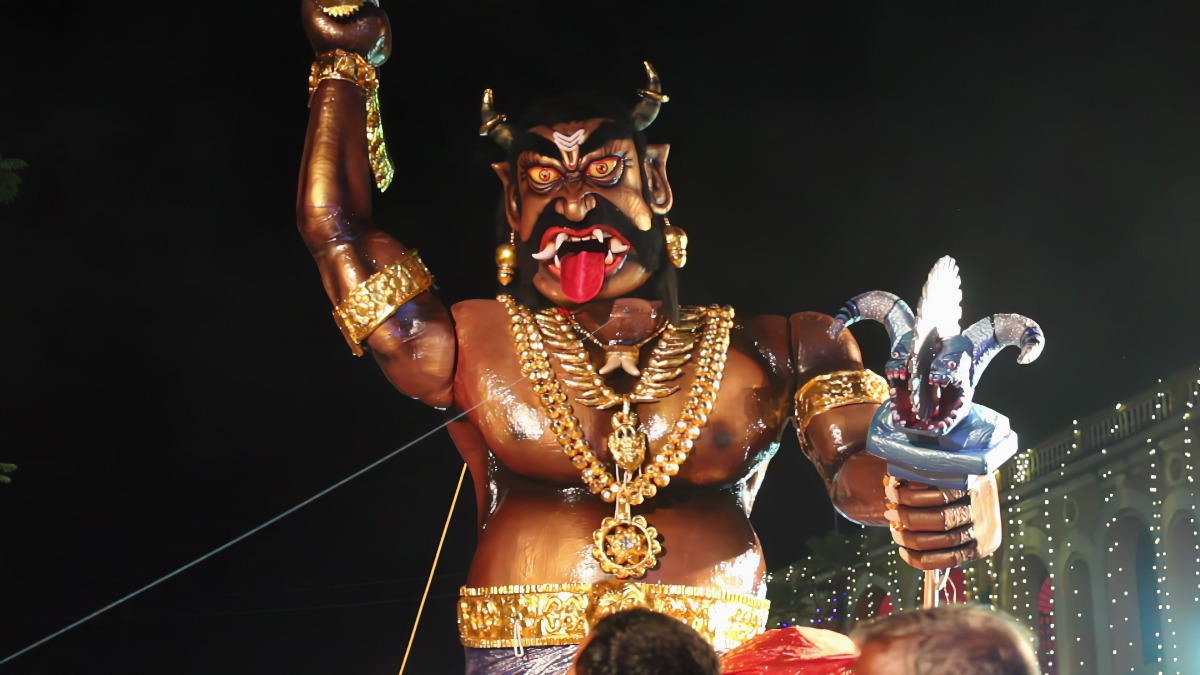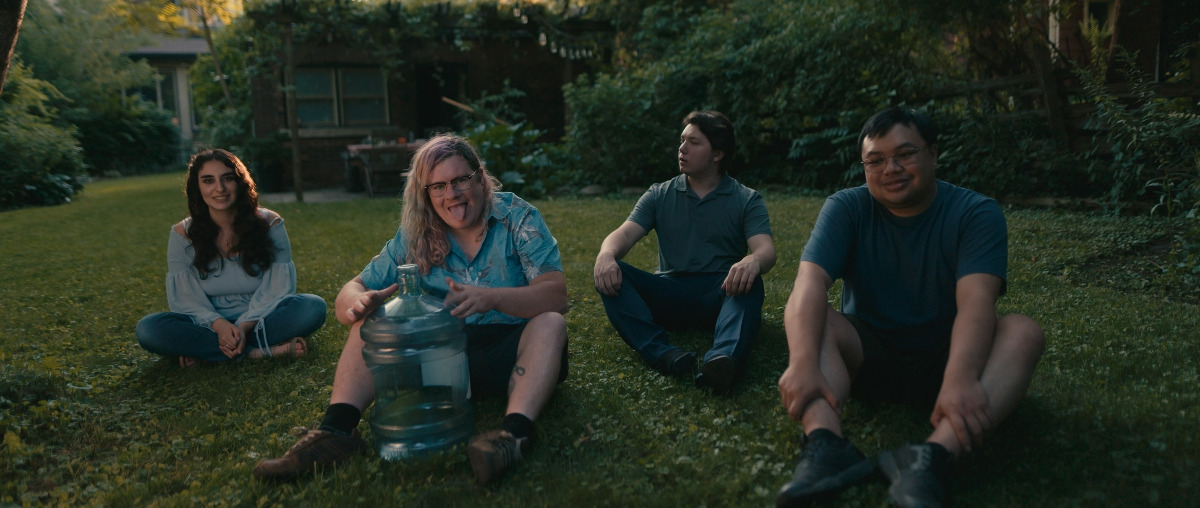Reason
(India, 218 min.)
Dir: Anand Patwardhan
The recipient of this year’s Outstanding Achievement Award at Hot Docs, India’s Anand Patwardhan is no stranger to Canada, where he received his Masters degree at McGill University and co-directed the activist pro-union doc A Time to Rise in 1981. Since his return to India, he has made politically and socially engaged documentaries, espousing the working people, freedom of speech and religious beliefs, secularism, socialism and, in particular, the cause of the Dalits (infamously known in the past as the country’s “Untouchables”), the lowest caste of an ancient hierarchal system that invokes divine sanction to brand a section of the working majority as lesser humans.
Anand has faced censorship and threats for his beliefs and hard-hitting films, including Father, Son and Holy War (1994) and War and Peace (2002), both of which are part of the retrospective of his works at Hot Docs. (Full disclosure: I’ve known Anand for many years through mutual friends in the documentary community.) Showing this afternoon is his latest, the eight chapter, 218 minute film Reason. That’s long, I know, but necessary, so that viewers can understand what’s happened to India pre and post Independence but specially since the rise to power of Narendra Modi and his BJP (Bharatiya Janata Party).
Once the great exemplar of secular democracy in Asia, India is now a place where ethnic and religious divides have ignited into violence all too often. Still technically a republic, India now supports the bullying right wing majoritarian leadership of Modi, whose storm-troopers have effectively reduced the liberal Congress Party, once led by Mahatma Gandhi and Jawaharlal Nehru to an ineffective rubble. How did this take place? What happened to India’s traditional embrace of secularism and humanism? What helped to make the rise of Modi’s party seem inevitable? The backbone of Modi’s BJP is the Rashtrya Swayamsevak Sangh (RSS) whose “upper caste” leadership has for close to a century fomented hatred against Muslims and superiority over Dalits.
Reason is a mystery story with Anand as the detective. It’s the perfect role for a documentarist to play. Let’s start, as Anand does, in 2013, with Narendra Dabholkar, a doctor and social activist, making a speech to a large audience against “blind faith” beliefs. He’s funny and persuasive as he denounces superstition and black magic but his larger message in favour of secularism turns out to be controversial. Dabholkar, we quickly discover, was assassinated. Who did it? The police seem baffled, but far from invisible is the fanatical hand of those who call for a full embrace of Hindutva (a fascist or Brahminical reading of Hinduism) and see rationalists like the late doctor as mortal enemies.
We move on to Govind Pansare, like Dabholkar, a writer and progressive advocate for change in India. Pansare was a Communist and while it doesn’t appear that Dabholkar embraced that political philosophy, both were secularists, opposed to blind faith, including among the Hindus. Less than two years after Dabholkar’s assassination Pansare was killed in a similar way, by gun-toting killers on motorcycles. His murder too remains unsolved.
Like a classic Raymond Chandler figure, though mainly off camera, Anand investigates both killings, questioning the widows, children, supporters and those who were opposed to each man about what happened. Though with the perpetrators ideologically in power, neither case could be led to justice by our documentarist—Anand can’t replicate Errol Morris’ legendary triumph in The Thin Blue Line—we delve into the history of Hindutva violence in India.
The big moment—truly one of the most devastating in world history—was the assassination of Mahatma Gandhi by Nathuram Godse, a Hindu nationalist, whose mentor was Vinayak Savarkar. Though Godse was executed for his crime, Savarkar, who had espoused violence as opposed to his rival Gandhi’s non-violence, was acquitted of any crime on a legal technicality despite solid evidence to the contrary.
Who was Savarkar? Anand lets us know about his Hindu nationalist convictions and embrace of Hitler, the swastika, and even anti-Semitism during the late 1930s. It’s Savarkar who wrote philosophical papers coining the term Hindutva and promulgated violence against the Muslims. When colonial India was split into Pakistan and India in 1947, Gandhi was accused of being a champion of Muslims. Earlier, upper caste leaders like Savarkar and the RSS had hated Gandhi’s injunction that not just Dalits but everyone should do their own manual scavenging. Hence, his murder.
Reason pursues its dual path of imparting historical and contemporary real-life dramas and tragedies throughout the film. There are new assassinations of rationalists, this time of M. M. Kalburgi, a scholar who was yet another progressive and also denounced Hindu idolatry, and of Gauri Lankesh a journalist who fought for secular values. Anand goes on to document further cases of brutality and bigotry since Modi took power.
The film focuses on India’s increasing use of violence against minority groups, mainly the Dalits, and the Muslims since Modi and the BJP took power. We see a terrible case unfold where a Muslim blacksmith was killed and his son extremely damaged for supposedly eating beef to break Eid. In his quietly relentless style, Anand exposes the transparent lies at the root of this canard, but, of course, it’s too late.
A second story, even more awful because the victim was so young, concentrates on the suicide of Rohith Venula, who along with 4 other Dalit PhD scholars at Hyderabad University were suspended and thrown out of their hostels because they had a rivalry with the youth wing of the BJP, and the BJP had political clout. Anand shows that Venula’s death was preventable and in his final suicide letter, the young man indicates that he no longer wanted to live in the kind of world where classist, racist rhetoric could dominate the political discourse.
Much of the latter part of the film concentrates on the pack mentality, ignorance and inherent violence shown by Hindutva. They’re captured in various macho scenes, showing off in almost absurd postures, as Anand’s camera records them. Reason is propelled by these scenes of vicious young men who evoke nightmarish resemblances to the Nazis.
In the compelling final story in the film, the audience is taken back to 2008 and the investigation of bomb attacks in Malegaon. Were they caused by Muslim terrorists, or by a secret Hindutva group called Abhinav Bharat? The head of India’s anti-terrorist squad in Mumbai, a truly upright man named Hemant Karkare, was investigating Hindutva terror but was killed in the horrifyingly violent attacks of November 29, 2008, that also claimed the lives of 175 people. The film indicates that there were two parallel attacks, one by Pakistani terrorists who had landed in Mumbai by boat and the other by Hindutva terrorists who having been pre-warned by Intelligence agencies of the Pakistani attack, took the opportunity to eliminate their main target, the anti terror squad chief, Hemant Karkare – a man poised to expose Hindutva terror. No one can conclusively prove how Karkare died or by whom, but Anand’s film certainly makes a strong case of the probabilities
Reason is an impassioned film advocating democracy, equality and secularism. It’s a masterpiece, expertly employing historical footage, commentary, and contemporary material to expose the roots of Hindu fundamentalists, who are the prime backers of Modi, the RSS and the BJP. It is complicated but everyone should see it. Kudos to Anand Patwardhan for not being silenced by the prevailing atmosphere of fear including an open threat recorded on film—to make a documentary that is of immense value in India but speaks also to us because we see the parallel rise of right wing nationalism throughout the world.












